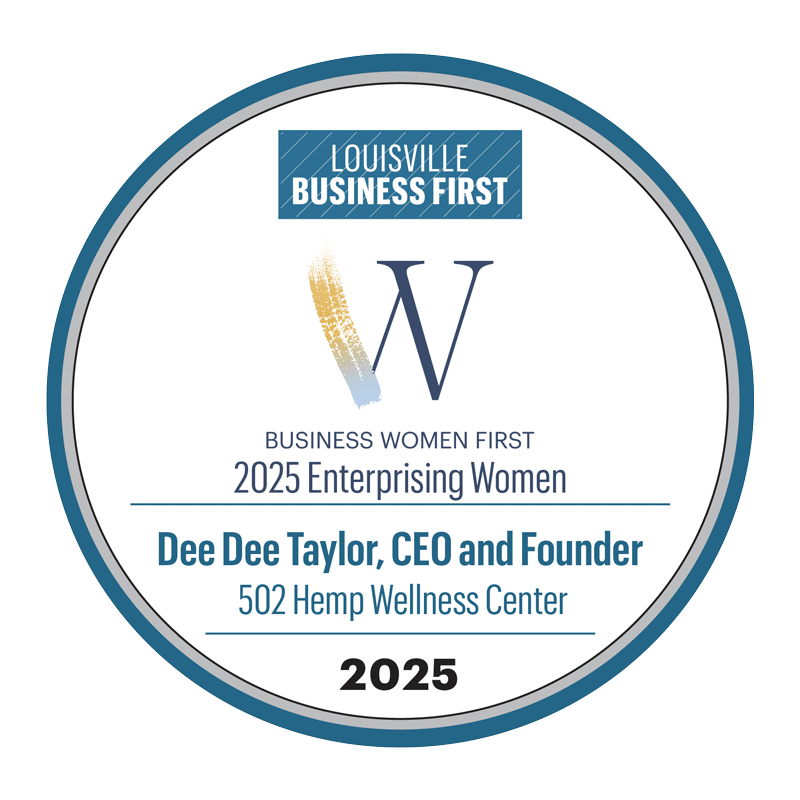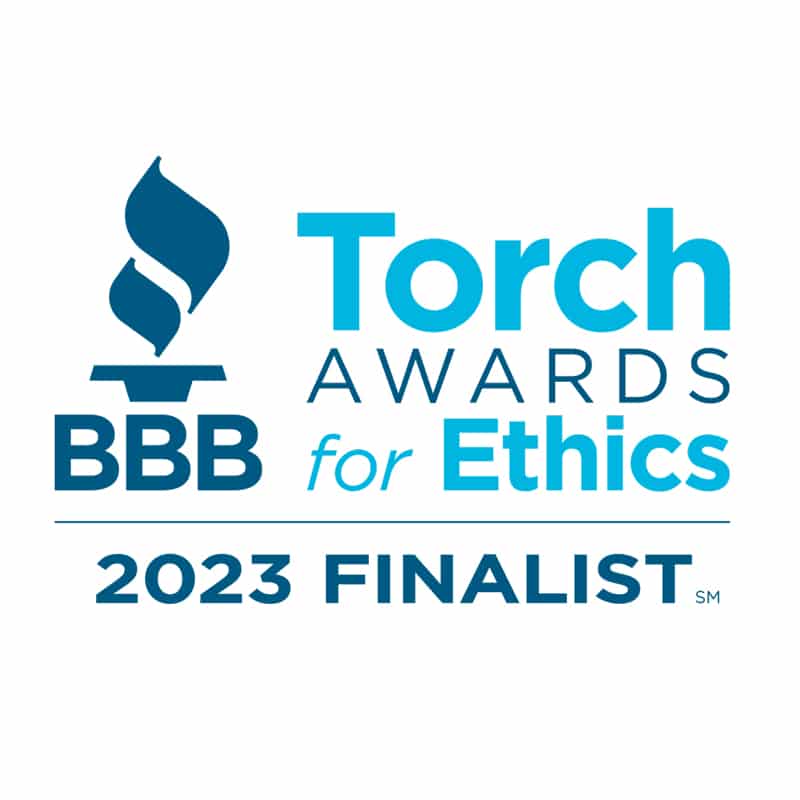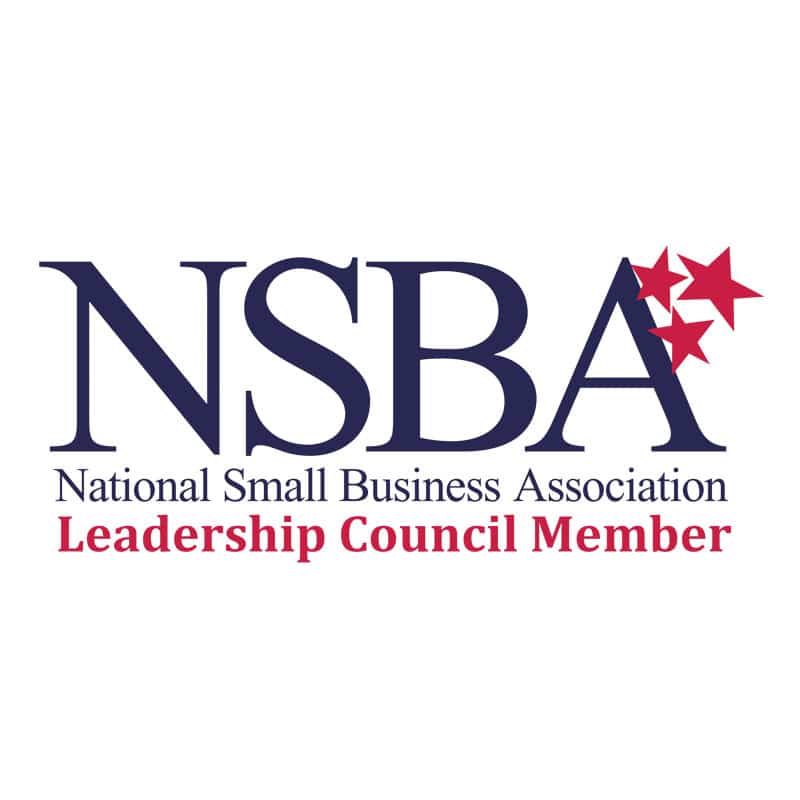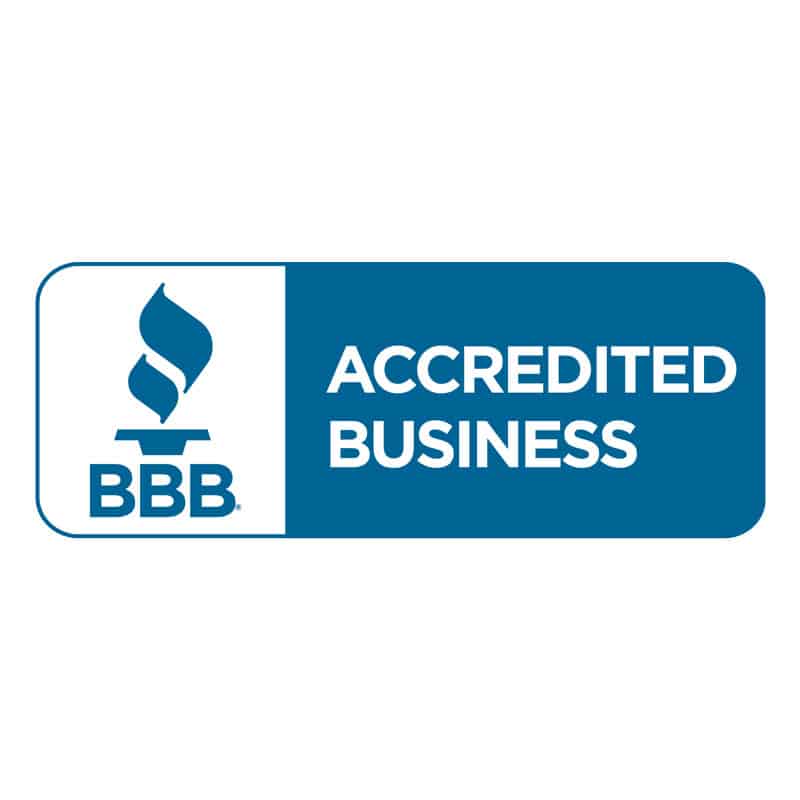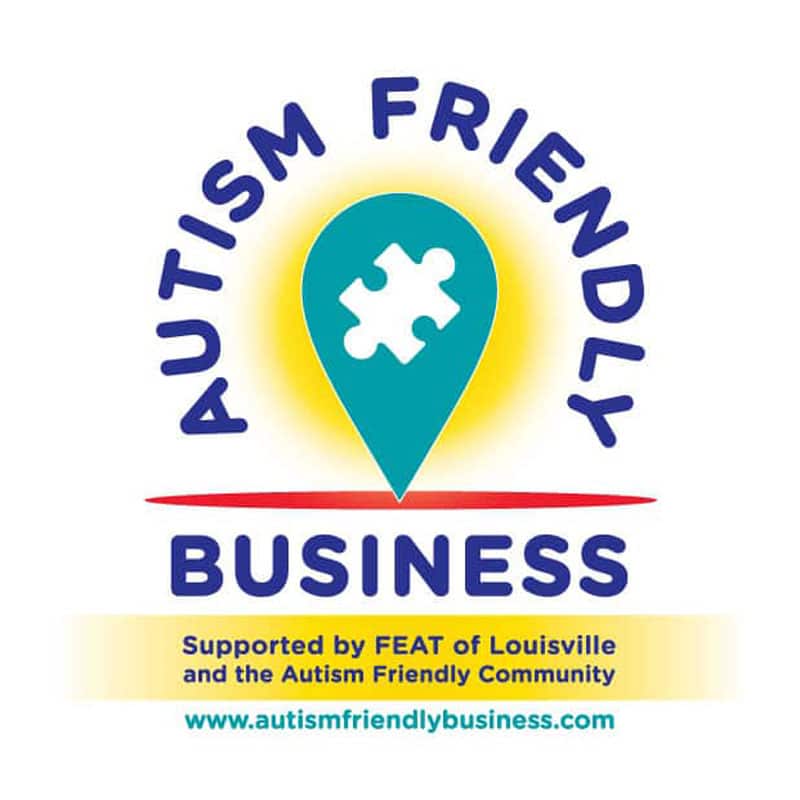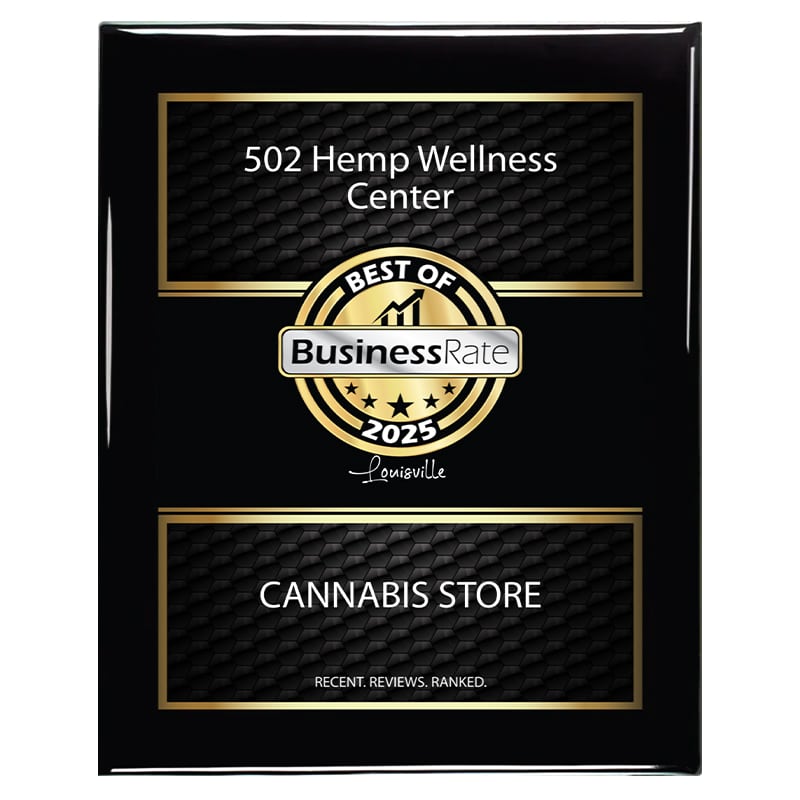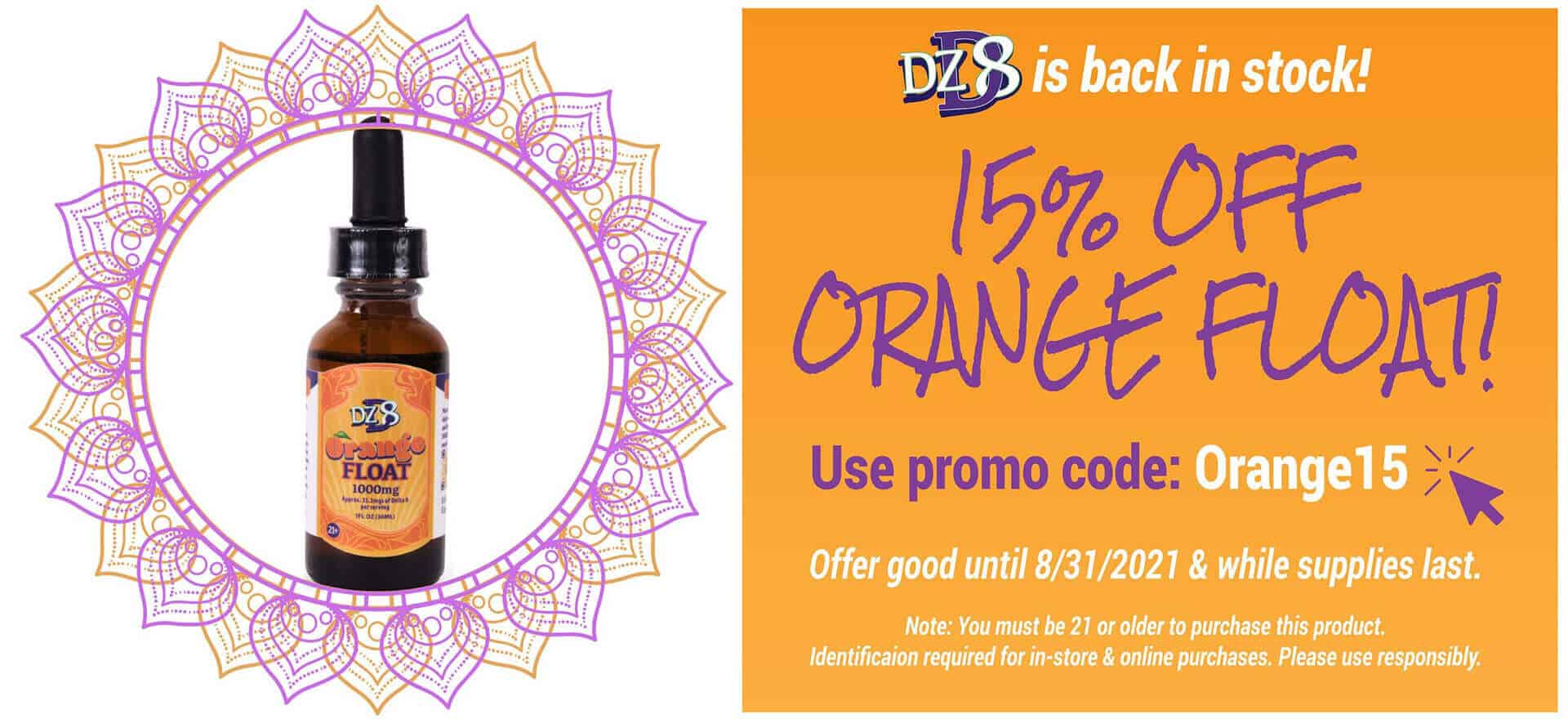
Read the Full Transcript
Introduction
Matt:
Hi, I’m Matt
Dee Dee:
And I’m Dee Dee. We are the hilarious outcome of opposing brains sharing a mutual desire to share knowledge and positivity when thinking about hemp and cannabis.
Matt:
We are here to tear down the walls built by big pharma and other big companies that seek to keep the human race and fear divided.
Dee Dee:
We are here to shatter the myths about hemp and cannabis and change the stigma of this amazing plant. Welcome to Hemp and Happiness with the hemp queen.
Matt:
And emperor.
Dee Dee:
Podcast. Join us as we venture into this misunderstood and the unknown.
Welcome
Dee Dee:
Hey y’all thank you so much for being with us and listening as always to our, uh, crazy antics podcast involving the fun, fun world of hemp and cannabis. Uh, we have an awesome guest today. If you don’t know who Dr. Amber Cann is, you should know who she is. Not only is she a very good friend of mine and I have known you since, oh man. We’ve met in what?
Dr. Amber Cann:
A few years back.
Dee Dee:
Yeah. 20
Dr. Amber Cann:
By chance.
Dee Dee:
18, maybe 2019, maybe, maybe. Oh, it’s, it’s been a while. It might have
Dr. Amber Cann:
Been 27. No. Um, I’m gonna say 2016 or so.
Dee Dee:
Okay. Yeah. It’s been a while. If, if there’s something about cannabis and hemp that I don’t know about, she is one of my go-tos. Oh yeah. Okay. So I will, I will. You’re up and I will bow to the other queen. That’s sitting in this room. Y’all um, uh,
Matt:
Shut out. <laugh>
Dr. Amber Cann:
Oh, Matt’s here too.
Dee Dee:
Yeah. Matt is here too. That’s right. We have to talk to him
Matt:
Guilty. <laugh>
Dee Dee:
But we so appreciate Amber being on today. And why don’t you just give us a little bit of your background and what you specialize in because you know, most people don’t know,
Dr. Amber Cann:
Right. Well, I’m a pharmacist pharmacist by training and a pharmacist for 22 years. I’ve been, um, doing, I’ve done a lot of different pharmacy things. Mm-hmm <affirmative> in my career. And just recently, um, over the years, I’ve worked a lot in substance abuse. Mm-hmm
Dee Dee:
<affirmative>, I’m just gonna move that a
Dr. Amber Cann:
Little closer too. Okay. There you go. Over the years, I’ve worked a lot in substance abuse and PA with patients in active addiction and active recovery. And so that’s been one of my practice interests throughout my whole career. Okay. Um, and of course, cannabis, alcohol, lots of different medications, um, play into, uh, a patient’s full picture of health and, uh, dis health. When you think about it. So the more I learned about cannabis, um, people using it really just recreationally, the more I got interested in the chemistry, part of it, I’m a chemist at heart. And, uh, there wasn’t a lot of research as we know, um, good research I’ll say, but the more I was able to find the more intrigued and fired up, I was about how beneficial it could be for patients. So I just started educating myself, um, right. And, and got, I sensed that new pharmacists that are being trained are not being trained on cannabis, because we do have patients who are using it both medically and recreationally, but most pharmacists have very, very little training on, um, on anything related to cannabis. The industry has just said, well, it’s illegal. It’s a C one drug we’re hands off our pharmacists don’t touch that sort of thing. But yeah, now we know the, the tide has changed and it’s coming to Kentucky. It will be here. And I wanna be on the forefront of bringing it responsibly and, um, and doing the right thing for our patients. Um, but also doing the right thing for Kentucky.
Dee Dee:
So the really cool thing about you that maybe most people don’t
Dr. Amber Cann:
Know the thing is there only
Dee Dee:
One thing, there’s a few things, but I’m just gonna,
Dr. Amber Cann:
I’m just
Dee Dee:
Pour this back up besides knowing me and we’re friends <laugh>. Um, but you, along with myself and what 13 other people were appointed to the governor’s medical cannabis advisory committee. Yes. Which is such a huge honor. Um, I was pretty shocked when I got that phone call. I don’t know about you, but well,
Dr. Amber Cann:
Considering that I had just sent an email kind of like you, you did. Yep. And I put my name out there to some people in certain circles and yeah, I was kind of surprised too, but it was hours before I was presenting to the Kentucky pharmacist association on medical cannabis. So
Dee Dee:
Go figure
Dr. Amber Cann:
It was, um, it was well timed that I got to announce it and being the only pharmacist on the, on the
Dee Dee:
Advisors. I know. And I’m the only hip person on that’s.
Dr. Amber Cann:
Right. Isn’t that
Dee Dee:
Pretty
Dr. Amber Cann:
Cool. So, and we’re all, we’re both pretty badass boss ladies
Dee Dee:
Agreed. I mean, and you can agree to that too back.
Speaker 4:
I agree. That’s here. I, not only do I agree with that, I, I I’d like to ask you both a question on the advisory board. Yeah. Tell us a little bit about what that entails, what the end goal is. Um, the steps in between walk, walk through the listeners through that.
Dee Dee:
Yeah, for sure.
Dr. Amber Cann:
Well, first I’ll say the reason that there is one is because Kentucky had a house bill that passed that languished in the Senate. Correct. And it basically, um, was ready to go. It had really the votes to go through the Senate and there were certain powers that be that, um, decided to focus their attention elsewhere.
Dee Dee:
Yes, they did. Um, as always <laugh>, they Kentucky’s been trying to pass this bill and to get medical marijuana here for a while now. And representative Nemus had put on house bill 1 36 and it passed the, it passed the house, flying colors and was moved on to the Senate. And of course it got stalled. Oh, again? Yep. Um,
Dr. Amber Cann:
And I was there in the gallery when it passed the house and it was very moving. Oh yeah. Um, cuz there were patients in the gallery mm-hmm <affirmative> and um, the wife of, one of our fellow advisory team members was there. Yes. Um, so I was, I was so encouraged and a
Dee Dee:
Lot of us were fired up. A lot of us thought that it might honest, I’m gonna be honest though. I did not think it would pass this year. And I just, I had that feeling that
Dr. Amber Cann:
Was a few days left in the session. Exactly.
Dee Dee:
And, and the fact that, you know, the Senate was trying to actually ban cannabinoids yeah. As well that they’re gonna pass medical, but ban cannabinoids the Delta eight.
Speaker 4:
Right. So how does the advisory board lend
Dee Dee:
To that? We’ll get there, work it there.
Dr. Amber Cann:
So yes, the advisory board came about because the governor also was disappointed that it hadn’t moved forward and he was looking into, um, a path to other ways, not maybe full legalization of medical programs, but just something to give relief to patients. Yes. So he created this advisory board. Um,
Dee Dee:
Yeah, no matter what anyone thinks about governor bushier, this is the first governor in the state of Kentucky that has actually been proactive on cannabis and trying to move Kentucky forward and get us caught up with the rest of the states that are, that have programs. And
Dr. Amber Cann:
Honestly, this is an issue that is very bipartisan, very
Dee Dee:
Bipartisan
Dr. Amber Cann:
You and far between
Dee Dee:
Exactly. I mean, for the, for the division in the United States and even in Kentucky, this cannabis is definitely bipartisan mm-hmm <affirmative>. But I think the main thing that, you know, we had our first meeting, um, last week and one of the main things that we talked about, what the committee is set to do, what we are supposed to be doing is listening to people, hearing why they’re for it and why they’re against it and actually listening to their stories. So we are kind of keeping record of that. Um, and whether or not, you know, they’re having town hall meetings as well there so far, there’s been three scheduled, a new one was just scheduled all in July, um, all over throughout the state kind of, it was the central west and Northern places. Mm-hmm <affirmative> um, so it it’s super important. I think there’s gonna be one in the Eastern district too, is that, uh, the
Dr. Amber Cann:
First one coming out is Pikeville next week actually on the
Dee Dee:
Sixth. Yeah. Oh yeah, it is. Um, and then there’s one, that’ll be in Frankfurt on, um, July 19th and then one in Hopkinsville on July 25th. And that’s one of the newer ones. So we we’re hoping that people come to these town halls and give us their stories as to why they want medical cannabis here. Um,
Dr. Amber Cann:
Or why they don’t or, or why they don’t
Dee Dee:
Or
Dr. Amber Cann:
Why, if they’re on the fence. Yeah. Maybe we can answer questions. Oh,
Dee Dee:
Very true. Very true.
Dr. Amber Cann:
I mean he put experts on this committee for
Dee Dee:
A reason, correct. For a reason. And even the committee is very well, um, rounded, well rounded mm-hmm <affirmative> yeah. Like there’s, you know, we’ve got, we’ve got the few advocates mm-hmm <affirmative> um, then we’ve, we’ve got a lot of doctors we’ve got, um, former attorneys, um, attorney generals. There is also, um, cookie. She has been in the correction side.
Dr. Amber Cann:
Yeah. She’s commissioner corrections.
Dee Dee:
Yeah. So it it’s really a well-rounded advisory team. So I thought it was pretty interesting and I think it’s good that the governor’s just trying to do something mm-hmm <affirmative> and hopefully we can take this research back and these stories back to those specific legislators, at least this is my thought, um, and maybe change them and sway them and get medical passed here. Um, cuz it’s needed, it’s needed.
Speaker 4:
There is some division between the hemp industry and the cannabis industry.
Dee Dee:
There is,
Speaker 4:
Uh, obviously there’s a, there there’s a revenue, uh, uh, factor causing <affirmative> a factor causing that division mm-hmm <affirmative>. And with the two of you, one, one being a pharmacist, one being a retailer, how do you see that? Uh, working out in Kentucky?
Dr. Amber Cann:
Well, I see it working out really well, frankly, uh, because it, if we go forward with what the house passed, which I hope they do, um, I think it’s a, it, it, it, it has, um, a very prominent role for pharmacists in that bill. And I like that obviously, um, because I do think pharmacists need to be involved in this process, cannabis and hemp have why, why say, why? Why? Because
Dee Dee:
Drug interactions,
Dr. Amber Cann:
Drug that’s what I was gonna say is drug interactions. There are so many drug interactions mm-hmm <affirmative>, um, and not just, um, it affecting drugs that the man, the patient may already be on and then they add cannabis of any variety, but also on cannabis. And so a patient could be taking something that would need to necessitate a change in the dose of cannabis, either the THC component or the CBD component to make it, uh, more safe and more effective for that patient,
Dee Dee:
Which makes sense.
Speaker 4:
So on that level, do you believe that a, uh, prescription should be required for someone to have access to cannabis?
Dr. Amber Cann:
Well, I don’t think they’re calling it a prescription, but
Dee Dee:
For medical cannabis, if they’re wanting to use it for medical reasons, I, I mean it,
Dr. Amber Cann:
Yeah.
Dee Dee:
Especially if they’re on other medications,
Speaker 4:
Right. Well, I’m, I’m not talking medical, I’m talking cannabis in general.
Dr. Amber Cann:
Oh, I see. Um, I’m not, I’m not, I’m more of a free love kind of person when it comes to recreational too. I mean, I think with, um, God guardrails in place for adults that I think, um, I’m okay with recreational use to, I mean, but I do think that pharmacists need to be educated because people will ask they, they need to be able to be safe to ask healthcare
Dee Dee:
Professionals. There is no doubt about that.
Dr. Amber Cann:
Yeah. So, um, the bill as it stands, or the bill that passed says that a pharmacist has to be a consultant for a dispensary and a pharmacist is part of that process of the patient obtaining medical cannabis. So a patient would meet with a pharmacist a after diagnosis after getting the recommendation and visiting the dispensary before receiving any product, they would consult with a pharmacist and then it would, um, there would be an ongoing relationship with that
Dee Dee:
Pharmacist. No, obviously in retail, who would bear that cost of the pharmacist, would it be the dispensary or would it be the patient?
Dr. Amber Cann:
The bill says that the pharmacist can can’t charge the patient more than $40 now of course, that could change, but I’m, I’m fine with that. Um, I think that, uh, there’s nothing in it that says that the pharmacist doesn’t or can’t connect, uh, or write a contract with a dispensary. So that’s really where right. The monetary, uh, renumeration for a pharmacist would happen is the, the, the relationship between dispensary and pharmacists.
Dee Dee:
Right. And my fear with that, not that I don’t think you should be a part of it cuz I do. But my fear with that is that that will raise the cost for the dispensaries. And thus that cost will be handed back down to the patient. Granted, I know there’s something in there that, um, taxes are not gonna be charged to the patient. Correct. But in order for the dispensary to be profitable in order to have those products, cuz they’re not cheap, um, that cost is gonna go down to somebody. I agree. So there is that, but to answer Matt’s earlier question, the reason there’s a discord between hemp and cannabis is because, and you and I have briefly spoke about this on our drive to Frankfurt, we carpooled huh? Saving gas. Um, but we carpooled and talked about a few things, but one of the things that is up for the 2023 hemp farm bill, um, that you’ve got hemp, people that are promoting completely changing the THC levels to a total THC and not allowing, um, Delta eight or Delta 10 or other, uh, other cannabinoids being sold at hemp dispensaries.
Dee Dee:
And the reason being is because a lot of these same products, it’s the same plant. We both know that we all know that. Um, but those products are, are being sold cheaper and they’re available through the hemp industry and people are coming there instead of going to the medical, the marijuana dispensaries. So the marijuana dispensaries are losing money on those products. And of course they’re saying it’s cuz they’re unsafe. It’s they’re extracted incorrectly, blah blah, blah, blah, blah, whatever the reason is, um, it all comes back down to money mm-hmm <affirmative> so you have hemp and cannabis are kind of fighting against each other and then hemp is also almost promoting that fact that they should be separated Uhhuh. So there’s that issue there? Yeah.
Speaker 4:
Well there’s the tax factor as well. Yes. The tax factor, I mean most states are charging what 17%.
Dee Dee:
Oh. And some are even more than that,
Speaker 4:
Uh, tax rate on cannabis mm-hmm <affirmative> and hemp products are zero. So that extra, that, that, well outside of the, your average state sales tax, if
Dee Dee:
Your state has one, right.
Speaker 4:
Yeah. Right. So that gives hemp quite an advantage.
Dee Dee:
Huge advantage.
Speaker 4:
Um, and, and I, I imagine that that what leads, what leads to the rift. So how, how would the two of you propose to resolve that on the council?
Dr. Amber Cann:
Let’s just fix this right now. We should, yeah. Okay. We hadn’t prepared ahead of time. <laugh> <laugh> but I’s okay. But I think this is simple enough to where we can solve now. Just kidding. No, it obviously is complex. It is. And I’m on, I mean, I’m not on team, Hemper marijuana or cannabis or
Dee Dee:
I’m pro cannabis period.
Dr. Amber Cann:
I’m pro patient. Yes. Yeah. I’m pro person, well,
Speaker 4:
You know there, and, and, and that’s, this is the point, right? Yeah. Cause cuz the division is ridiculous, but there’s considerations that need to be considered and resolved before moving forward.
Dr. Amber Cann:
Right. But the, because they do also affect people. They do is the people who are growers, the people who are in the industry.
Dee Dee:
And here’s the one thing I truly do not believe that just because medical passes here in this state that they should make the Delta eight or the Delta nine that comes from he or any of the other cannabinoids make it only be bought at a dispensary. And the reason being is we have people that may not be able to get their medical marijuana license or may not be able to pay the fees to get that or to go into that dispensary and pay those fees when we have just as good products in our stores available through hemp.
Dr. Amber Cann:
I’ll agree with that. And I’ll say too, that the Kentucky bill was very narrow in the, the allowed or the, the approved medical conditions, that medical marijuana
Dee Dee:
Very narrow.
Dr. Amber Cann:
I mean you have to start somewhere and yes we do. I, I, the conditions that were approved I agree with,
Dee Dee:
But there was one that they really should add.
Dr. Amber Cann:
Oh, um, what do you think they should add?
Dee Dee:
Well, PTSD, you always have anxiety. That’s
Dr. Amber Cann:
Well, that’s
Dee Dee:
True. I think the anxiety aspect should be added to it. I thought, uh, I thought it was only PTSD and not anxiety. I
Dr. Amber Cann:
Don’t know. It was so broad that I kind of read it as that meaning you’re right. I don’t know. I would’ve liked to have seen Parkinson’s or, um,
Dee Dee:
Are you kidding? Yeah,
Dr. Amber Cann:
It did include spasticity. Um, and it mentioned Ms. Mm-hmm <affirmative> um, but it didn’t specifically say Parkinson’s so right. It’s you know, it it’s
Dee Dee:
It’s
Dr. Amber Cann:
Room for improvement.
Dee Dee:
Even Ohio is still adding conditions. I mean, and this is new for our state. So I just hope that there is a condition in the bill that says, you know, as, as things come up, we’ll be able to expand on this.
Dr. Amber Cann:
Oh, I think so too. Most states have.
Dee Dee:
Uh, yes. So
Speaker 4:
And what about, what about a hurt? Big toe?
Dee Dee:
I mean yes. If cannabis gonna help you use it. Yeah. <laugh> I mean, that’s how I feel about it, but that, I mean,
Dr. Amber Cann:
It’s not on the list of medical conditions of
Dee Dee:
Yet it’s GIS. Yeah.
Speaker 4:
I have, I have all of these. You have all my toe is killing me. Yeah. Yeah. I could use some
Dee Dee:
Cannabis. I mean, you eat a lot of meat, drink a lot of
Speaker 4:
Alcohol, you know what, you know what it could be damn now I’ll have, you know, um,
Dee Dee:
Nevermind. Okay. Are we gonna
Speaker 4:
I’ve I’m conservative on the, on the drinking, but that’s neither good’s this is not about me. I’m more interested in this advisory board and, and what, what really interests me is that line of medical versus recreational mm-hmm, <affirmative> how that’s going to affect the hemp industry, how that’s gonna affect taxes, how that’s gonna affect retailers. There’s a lot to think about there
Dee Dee:
Is there is mm-hmm
Dr. Amber Cann:
<affirmative> and when I start to think about it late at night and all the things that I, I mean, even just like, you know, outside of my pharmacist realm mm-hmm <affirmative> but I start to think about, oh, I hope we, I hope we talk about that. Yeah. And I hope somebody’s thinking about that. So if, you know, start
Dee Dee:
Making notes, look, I mean, if I’m making notes yeah. I’ve just been making notes. So when we all come together, we can all talk about it. Well,
Dr. Amber Cann:
Just like we were talking before we started recording about training for dispensary employees, mm-hmm <affirmative> there are states who require it. There are states who do not, and I believe that Kentucky should, but
Dee Dee:
I do too. <laugh> I mean, but some people’s training is just from years of experience. True. You know what I mean? True.
Dr. Amber Cann:
I don’t,
Dee Dee:
If you educated myself,
Dr. Amber Cann:
Of course else did I for a lot, I didn’t get cannabis training in
Dee Dee:
Pharmacy school. Of
Dr. Amber Cann:
Course not. But if you have someone coming in from another state, who’s been a bud tenderer or a dispensary person for a long time. Okay. I count that as a experience I do too. Um, and then we can, you know, take a test or something, but training also adds costs. And so I, I I’m sensitive to that as well. Again, I’m pro patient I’m in favor of us, not killing people, correct. People get annoyed when you kill them. So let’s not do the,
Speaker 4:
How, how would you kill people or are you just being
Dr. Amber Cann:
SAR? I’m being, I’m being a bit facetious, but I was saying with drug interactions, drug interactions, I mean, there are, I mean, honestly there are a few very, very concerning drug interactions with cannabis and for war in, for instance, a drug, blood thinner, um, certain, um, seizure medications. Won’
Dee Dee:
Won’t even sell it to someone if they’re on warfarin.
Dr. Amber Cann:
Yeah. Good. Thank you.
Dee Dee:
I just, I know I, and I know this from my own experience, I’ve been on warfarin before. I know how horrible it is and everything it interacts with. I mean, you couldn’t even, you couldn’t even hardly eat any green stuff like you to limit that stuff too. Right.
Speaker 4:
So do, do you know what warfarin was originally invented
Dee Dee:
For? Yes, I do.
Dr. Amber Cann:
I do
Speaker 4:
Rat
Dee Dee:
Poison. It was yeah. Rat poison. That’s why I’m kind of thin on top with my hair. Y’all we ain’t gonna go there. <laugh> um, <laugh> but yeah, it’s some crazy stuff. I mean, I had blood clots grown up that were not my fault. Um, but shit happens. Right. <affirmative> and shit happens. Right. We all have a crazy pest and some of the things we had to take, but yeah, warfarin is one that I’m like, mm, no, you gotta talk to your doctor first.
Dr. Amber Cann:
So there’s just really high alert kind of things. Yeah. That we pharmacists we think about in our day to day of other medications. Well,
Dee Dee:
And we, uh, even as, uh, we hemp gurus and have been doing this a long time, we are, we cannot give medical advice. Right. So when someone comes in, it’s really on them, they should always check with their doctor if they can take these products or pharmacists or pharmacists. And I, I usually, I usually tell them if you’re on a lot of medications, you can check with your pharmacist. Yep. Um, but again, I worry that some pharmacists don’t know.
Dr. Amber Cann:
Yeah. Most pharmacists, not most pharmacists, um, a growing number of pharmacists will, will do the, you know, will have some basic knowledge. Correct. And, um, unfortunately, I mean, it just, there’s not a lot of time in pharmacies that allow for pharmacists to do the research or to even look up something that they don’t know. Right. It’s such a, a manufacturing. Um, do you line, do, do you
Dee Dee:
Teach like, um, CLEs, like I know that’s a legal thing continuing legal education, but do you do that kind of that same thing?
Dr. Amber Cann:
So, um, so yes, to the Kentucky pharmacist association, mine was a, a continuing education, good session for them. I wasn’t sure what the pulse in the room would be for pharmacists on medical cannabis. I think some were completely disinterested because of the legal issue. Um, or maybe they’re close to retirement and it’s not something they wanna think about anyway. Right. Or, or they, or they think they don’t have patients who use cannabis, which
Dee Dee:
<laugh>
Dr. Amber Cann:
Yeah. I would say to that
Dee Dee:
One way or another, I, I bet. Yeah. I bet you money. They’re using.
Dr. Amber Cann:
Oh, and that was my point. That’s what I started the presentation with. So, but others were cur maybe curious to start with, but uh, fired up good at the end of it. And then others definitely saw the possibility of working with dispensaries. There’s nothing in the bill that says a pharmacist can’t own a dispensary mm-hmm <affirmative> uh, the people who are making the determination, uh, that a patient qualifies cannot own a dispensary, like a physician. Right. Um, so, so I was, I left that meeting, very encouraged that a lot of the pharmacists, at least in that room were open to the possibility right. Of, of welcoming it into their practice.
Dee Dee:
I know I wanted to bring up too. One thing that, uh, Dr. Amber can and I talked about on that ride to Frankfurt was I think it was on the way back actually. Um, we talked about how, you know, people, if they eat too many gummies and what their reactions are, and if they end up in the ER, right. What’s a good thing that will help people with that. Oh yes. It C B D Uhhuh. And the what CBD isolate,
Dr. Amber Cann:
Right? Oh yeah. Right. CBD is isolate because it, it sort of competitively blocks THC from hitting its receptors and sometimes it will bump it off. So, so yeah, that’s a, a known remedy for people who are coming into the ed with, um, with, as a,
Dee Dee:
The ER
Dr. Amber Cann:
And ed, right. The ER, emergency department emergency room. That’s right. Um, they’re coming. Yeah. Ed has
Dee Dee:
Another, yeah, it does. Especially in our realm. So that’s why I had to correct you <laugh>.
Dr. Amber Cann:
Yes. Um, so yeah. Yes. People will, you know, you’ve probably talked about this on the podcast before where people with edibles will take one and then it doesn’t have an effect and then they take another one and it doesn’t have an effect. And, and, um, I learned the term cookie casualty, which is one of my favorite cannabis terms where
Dee Dee:
Cookie
Dr. Amber Cann:
Casualty. Yeah. Where they’ve <laugh>
Dee Dee:
Have you talked about I’ve not, no. And I don’t think we have talked about it really on the show. Oh,
Dr. Amber Cann:
Well, okay. Yeah. So, I mean, that’s some states, uh, especially in the medical realm, they require their gummies and edibles to be sort of a non appealing right. Gummy shape. Right. You know? Um, but other states don’t have that right. Ation. So you could buy a chocolate chip cookie that has supposedly a certain amount of cannabis in it. But who’s to say that half of the cookie has half of the dose. Right. Yeah. Um, so people will maybe they’ll start slow and take fourth of a cookie, but who the hell eats a fourth of chocolate chip cookie anyway.
Dee Dee:
<laugh> has my stomach grows and I’m thinking of lunch. Yeah. Yeah.
Dr. Amber Cann:
No kidding. So, um, so yeah, they just continue to, you know, they, nothing happens within 15 minutes and
Dee Dee:
They it’s that instant gratification, which we have talked about on this show. Yes. And yes, edibles take time.
Dr. Amber Cann:
They do. And they do. They’re very, um, there’s a lot of biochemistry that’s complicated that that affects patients on how edibles are absorbed. Correct. So it can be your stomach acid level. It could be your, how fast your GI system moves in general. You could have other metabolism. Right. I mean, just if you’ve eaten or you’ve not eaten, mm-hmm, <affirmative> what the content of your meal was that you ate. Right.
Dee Dee:
Because fatty means fatty.
Dr. Amber Cann:
Yep. CBD and THC are both what they call lipophilic mm-hmm <affirmative>. And so they need fatty stuff around them to be able to be absorbed. Yeah. So I mean, it, it’s, it’s very unreliable or at least very it’s unpredictable, unpredictable, oral route. And so these people who take more and more, um, then it all sorts sort of kicking in at once. Yeah. And it might it’s too much. And then it’s too much. And, you know, they’ve, despite their more knowledgeable friends warnings of starting low and going slow and waiting for it, um, they needed that instant gratification. And then their first experience, perhaps with it’s not so good is not great. Right. But yes, in, uh, emergency rooms, if they do come in with the untoward effects of THC mm-hmm <affirmative> oh, I, I don’t wanna say it. It is an overdose, right. It’s too much dose. Right. But of course it’s not a fatal, um, condition, but, um, if it, they, which is
Dee Dee:
Good. Yes. That’s the one beautiful thing about cannabis.
Dr. Amber Cann:
Yes. And I can talk about why the there’s no virtually no overdoses of, of THC. If you like, I can drop some scientific knowledge bombs and brain chemistry. Well,
Dee Dee:
We’re gonna have you back on the show for sure.
Dr. Amber Cann:
But yeah. So they’ll, they’ll administer CBD in the emergency room as, for, and supportive care, you know, hydration and, and that sort of thing.
Dee Dee:
Of course. Yeah, of course. And,
Speaker 4:
But once, once the THC has been absorbed by the endocannabinoid system and the psychotropic chemicals have been released to the brain, mm-hmm <affirmative> CBDs not gonna reverse that.
Dr. Amber Cann:
Um, it can, it can, it doesn’t reverse that reaction, but it actually attenuates it.
Speaker 4:
You can’t, so it would prevent more THC from being absorbed
Dr. Amber Cann:
Not anymore. I mean, it’s still, probably coming to, I mean, there’s there it’s coming. It’s coming
Speaker 4:
<laugh> it would, it would, it would reduce the amount of
Dr. Amber Cann:
It would yes. The thought is, is that it would reduce and at least minimize, uh, an escalation at that point of untoward symptoms.
Speaker 4:
But once it’s absorbed, it’s
Dr. Amber Cann:
Absorb it’s there. Yeah.
Speaker 4:
And I, and that’s something I’ve had to explain to customers before as well. Like it’s not gonna snap you right out.
Dee Dee:
It doesn’t, it doesn’t snap
Dr. Amber Cann:
You and it’s
Speaker 4:
Not like, and be beyond your Merry way.
Dee Dee:
Not
Speaker 4:
Up from school.
Dr. Amber Cann:
Yeah. No, no. It’s not the, the EpiPen in the TVs
Dee Dee:
That
Dr. Amber Cann:
They definitely stab in your chest or anything. Yeah. So, um, yeah, the that’s important to know is that just because it, it took a while to get there and it’s also gonna take a while to reverse,
Dee Dee:
But I mean, the average time is what, four to six hours.
Dr. Amber Cann:
Oh, that’s reasonable. Reasonable, but it could be up to eight to 12.
Dee Dee:
Some people that is true. I mean, depending on the, the metabolism part aspect of it.
Speaker 4:
Well, that’s what they’ve told me with other medications and it’s bullshit.
Dee Dee:
<laugh>
Dr. Amber Cann:
I mean,
Dee Dee:
But we’re all different. We all metabolize
Speaker 4:
Kids. We can pill my ass, Viagra <laugh>
Dr. Amber Cann:
Well, isn’t it telling that we can prod, we, we can predict things like Viagra within 15 minutes, we can make a pill that works within 15 minutes of Viagra, but CBD and, and THC all
Dee Dee:
Over the place. Yep. Yeah. Well, because we have a system for it,
Dee Dee:
You know what I mean? So our bodies will use those cannabinoids for what our body wants to use it for. Yes. Not for what we want to use it for. That’s the one thing about that, that right. That I have just honed it, you know, I’m like, give it time to work people. This isn’t a pill. Yeah. It takes time. Right. And especially with edibles, I’m like, please just go slow. Mm-hmm <affirmative> no matter how many times we’ve said that we’ll have people come in, I took too much. You were right. I shouldn’t have taken that much. I’m like, if you listen to me, if that’s why we’re here, we’re here to educate you.
Dr. Amber Cann:
Yeah. And it’s not only, I think it’s not just the slow to onset mm-hmm <affirmative> but it’s slow once it’s, there’s an onset. It’s slow to, you know, build up mm-hmm <affirmative> too. And so that’s another thing. Oh, just they, they might even start to feel something and then, but they think, oh, that’s not enough.
Dee Dee:
Right. Oh, true.
Dr. Amber Cann:
So then they build on it as well.
Dee Dee:
Yeah. True. That is true.
Dr. Amber Cann:
So don’t be, don’t be a cookie cash
Dee Dee:
Cookie cash. Listen to, I love that
Dr. Amber Cann:
The people who are trying to help you. Yeah. Just like in any medication you start low, you go slow. Yep. And, and pharmacist can help with finding that dose. Correct. Very educated people like UDD can help people. And that’s pretty educated too. BES here. <laugh> <laugh>
Speaker 4:
Yeah. I don’t know if my education I’m more of a shoot from the hip, but
Dee Dee:
Is kind of a shoot from the
Speaker 4:
Hip that said, and that actually brings, uh, so I was just, I really just have one question that I’d like to ask, and that is with the lack of FDA approved research for THC and cannabinoids in general, I really get confused on this whole prescribed cannabis when we’re not even allowed to make medical claims about this shit. Yeah. So it’s like, okay, well we have no idea what it does because no studies have been conducted, wink, wink, nudge, nudge, laugh in the background. Mm-hmm <affirmative> but we’re gonna prescribe it now. Yep. With no studies published about anything. And by the way, you’re not allowed to make any claims about anything that it does. Oh. But you can get a prescription for it. Yeah. Tell me how that ship makes sense.
Dr. Amber Cann:
So in the United States, there, there isn’t obviously there’s been a prohibition on actual rigorous research on cannabis of cannabinoids was
Dee Dee:
Put in a schedule one in the seventies that’s right. Because of Nixon, which is a crook. So I don’t know why we still on listening to bar division,
Speaker 4:
Division
Dr. Amber Cann:
Podcast and you know, John and yeah. Henry I, and anyway, it’s terrible. But, um, yeah. So, um, but the research has been done in other countries. Israel is miles ahead. I mean, light years ahead on research in cannabis mm-hmm <affirmative> so there are published studies, there are, there is rigorous research, there are data to support.
Speaker 4:
Um, but will that the United States and the FDA accept those?
Dr. Amber Cann:
Well, um,
Dee Dee:
It’s common.
Dr. Amber Cann:
That’s there that’s two different questions, so, okay. The FDA
Speaker 4:
Federal drug drug administration, so right.
Dee Dee:
I thought it was food and drug.
Speaker 4:
Oh, they don’t. It is it’s food. Drug is a food and drug, but it’s a federal,
Dr. Amber Cann:
A federal
Speaker 4:
Agency,
Dee Dee:
Currently food and drug should never be put in the same sentence.
Dr. Amber Cann:
Yeah. So I think about the FDA as kind of like the, think about the people who certify, um, hair dryers. Okay. You know, that UL symbol on it, you know, there, there are agencies who, who test these products and say, yep, they will not burn your house down. Right. And so we, we, and so comp companies sell those products because they don’t want people’s houses to burn down as a result of selling this hair dryer. Um, so it’s it behooves companies to find products that are safe. Right. And it behooves the, um, the regulatory agency, the like the, the, the certifying agency to do good testing, to make sure that their reputation is intact. Right. Right.
Dee Dee:
Okay. But that’s still a questionable too. I mean, these labs are all over the board on testing. Well, that’s
Dr. Amber Cann:
True. Yeah. Well, and, but what I was gonna say about the FDA is they, their, their motivation is to maintain their reputation of being, you know, the gateway to safe medications in this country. Right. That’s bullshit. I mean,
Speaker 4:
Right. Well, there has to be some regulatory.
Dee Dee:
Yes. There does. There does
Dr. Amber Cann:
Committee, but it, for the FDA, there’s no, um, there’s, there’s benefit to saying we need one more study or this study that you’ve submitted to us that fits all of clicks, all of the boxes. You didn’t look at this type of patient, or we, we just would like to see one more. And so their, their onus is on SPO, you know, public protection well, and less so on getting, you know, medication that has been studied in other countries that we do have get the data on. And,
Dee Dee:
And I, I obviously I’m pro, but I also have a problem with it. Um, being treated like a drug as well. And these manufacturers that are trying to get FDA approval as a drug, whatever their product may be as a drug, you can’t patent a plant mm-hmm <affirmative> and that really has been the whole issue. Yeah. So when they’re, they are putting on these research things, and they’re taking this drug that they are now, um, making out of cannabis, they are putting additives in it.
Speaker 4:
But still that, that that’s the whole thing is if by definition it’s a drug. Is there any F is there any drug on the market right now? That is not FDA approved?
Dee Dee:
No.
Dr. Amber Cann:
Oh, there’s lots of,
Dee Dee:
Well, I mean, there’s
Speaker 4:
What we’re talking about, that doctors are prescribing sure. That is not FDA approved. Absolutely. I didn’t know that there’s, that’s fascinating
Dr. Amber Cann:
To me. They’re not prescription products though.
Dee Dee:
Exactly.
Speaker 4:
Okay. They’re more
Dee Dee:
Order diet.
Dr. Amber Cann:
Actually’ll take that back. I’ll take that. So I was thinking dietary supplements, because dietary supplements don’t are not regulated by the FDA. They have that nice little warning label on there that says they haven’t been evaluated and doctors prescribe them to say, Hey, you should go get, you know, whatever supplements. And we don’t have a lot of research. We have more research on ham and cannabis, honestly, rigorous research than we do on a lot of that stuff. That’s on the Walmart shelf. Um,
Dee Dee:
But other big box shelves.
Dr. Amber Cann:
Yeah. Oh, sorry. <laugh> yeah. On the beep shelf. Yeah. Um, but the, but there are to answer to go further. Is there are thousands of medications that are FDA approved that are prescribed for reasons that they’re not approved for.
Dee Dee:
Correct.
Dr. Amber Cann:
That’s and that is interesting. That is leg legit. That’s called off-label prescribing and that’s a legitimate practice.
Dee Dee:
That’s what the I Mitton is. Yeah. That’s why some of those doctors
Speaker 4:
Would, and Dr. Molly actually spoke on off-label prescription during our previous part podcast.
Dee Dee:
Let’s
Speaker 4:
Okay, good. That’s interesting to
Dr. Amber Cann:
Me. Yeah. So it can be used for good and for evil. Correct. Um, and so yes, but yeah, there, the back to your question about the, the prescription, yes. It’s a C2 or C1 medication. And I think that medical professionals have been sort of careful not to call it a prescription in, in medical programs. So in a state that has a medical cannabis program, it’s not that the prescriber or the cannabis clinician is writing a prescription in the traditional sense that they would write a prescription or now, uh, electronically sent
Speaker 4:
Smoke two joints and call me in the morning.
Dr. Amber Cann:
Right. Right. I don’t think they’re writing that, but then maybe they are, but it’s not on a prescription pad. Like we, we hold that pharmacist hold that SACS sank, you know, so there’s, they’re using different terminology. Um, and it’s more of a recommendation. I think. I don’t know what that’s, I don’t know what the terminology of the land on is, but it’s more of like the recommendation. And then they go with the recommendation and a plan for how often they’ll be using something. And then the they’ll go to the dispensary and the dispensary will have products that will have the, the milligram level that’s been, uh, suggested by the prescriber.
Speaker 4:
That’s interesting. I’d actually never been walked through that before. Okay.
Dr. Amber Cann:
Yeah,
Dee Dee:
Yeah. Yeah. I mean that, it all is, but I, the one thing that we wanted to definitely, um, tell all you Kentucky and Kentucky and listeners, um, there is a website, it is called it is medical cannabis dot K y.gov. Go to that. If you cannot be at any of those town hall meetings and voice your opinion, whether you’re pro or you’re against medical marijuana. And please, I know everybody wants recreational. All ain’t stupid. We all know this. That sounds, we all know, but that is not what this is about. It is about medical cannabis coming to Kentucky. Um, so voice your opinion on that. Again, medical cannabis dot K y.gov, share your insights. We wanna hear the stories. That’s what, that’s what we were appointed to. I’ve already had numerous callers call me. I’ve had numerous people on my Facebook reach out to me and they were definitely for it. Um, and at last count, I think, um, the lady from the justice and public safety cabinet told me there was about 1100 people that had, and like, wow.
Dr. Amber Cann:
I think it was like, that’s only been up a couple
Dee Dee:
Weeks. 8% was pro. Yeah. Yeah. So that’s super important. I mean,
Dr. Amber Cann:
Two of them were just like some sort of like print that was offering to send them a lot of money. Oh, really? The form. I think that’s the other 2% were just were scammers. Yeah.
Dee Dee:
And I’ve had a lot of people reach out to me. Of course. How do I get on it? How do I do that? And I’m like, I don’t, I think they’ve made their decision as far as the committee members go. Oh yeah, yeah. Um, it
Dr. Amber Cann:
Could be, I, I think, um, I mean more committee members could be named as others roll off.
Dee Dee:
And I think the biggest way for others to help is to spread the word. Yeah. Spread the word about the town hall meeting, spread the word about the, um, website and, you know, just kind of keep pointing that stuff out to
Dr. Amber Cann:
Everybody. And I will add a major way that any Kentucky and can make their voice heard is make an appointment with your legislator.
Dee Dee:
Absolutely.
Dr. Amber Cann:
Write your legislator, show up in your legislator’s office. Mm-hmm <affirmative>, you know, do it in, do it
Dee Dee:
Respectfully,
Dr. Amber Cann:
Respectfully,
Speaker 4:
Which we did. We, yeah. This is like an every episode. So I’m glad that you brought that out. Yes.
Dr. Amber Cann:
Yep. I mean, be your own advocate. Tell your stories by submitting your stories on this website. Correct. But it’s, if you can look your representative in the eyeballs and tell them your story, um, that is, that is much more powerful. Yeah. And if it is someone who is, um, on the fence, mm-hmm, <affirmative>, you know, that can be very, that can be, that can be persuasive when they know that there are people that they are representing and people that are actual real people and human flesh that can be helped by their efforts. I think people can be moved by that.
Dee Dee:
Yes. Correct.
Speaker 4:
Well, I feel very good knowing that you two are on the council and I’m very excited to see how this pan out and I’ll just leave you with one more comment. Okay. Recreation is the best medicine <laugh> okay. Indeed. Indeed. So think on that. Okay. Next council meeting. <laugh>
Dee Dee:
Right. For sure. Baby
Dr. Amber Cann:
Steps, baby steps. Yes. Yes. Now, did I understand that I have a bet to solve?
Dee Dee:
Oh, you already
Dr. Amber Cann:
Did it.
Dee Dee:
We talked about the, the CBD ice isolate.
Dr. Amber Cann:
Oh yes. Yes.
Dee Dee:
We
Speaker 4:
All did good. We all win.
Dr. Amber Cann:
We, we did that. We all went what I wanted to, I wanted to circle back speaking of CBD ice isolates and, and about like, um, prescription mm-hmm <affirmative>, um, CB or cannabinoids. Right. Um, I think an interesting sort of possibility in the future might be that these companies start making isolates that have a particular cannabinoid that have a particular terpene mm-hmm <affirmative> that have, you know, and these bespoke
Speaker 4:
Ultra spectrum <laugh> wait, what, what extracts available? Five, two.
Dr. Amber Cann:
There you go. Well, I mean, they, they do exist in some form, but I mean, I, I can just, I can see light bulbs going off in someone’s head that, however,
Dee Dee:
Mm-hmm <affirmative> it is so important. And you and I discussed this as well, terpenes they’re in every single plant. Okay. Terpenes their sense. If you don’t have a true cannabis, terpene don’t even bother with it.
Dr. Amber Cann:
Yeah. I mean, if it’s, it’s add to make it stinky.
Dee Dee:
Exactly. That’s not the beneficial aspect of the cannabis terpene. And that’s the one thing that has irritated the live and shit out of me about terpenes. Most people are like, oh, but you gotta have that for the entourage effect. Well, I’m sorry, but there are not a whole hell of a lot of cannabis, true cannabis terpenes on the market that are sold separately. They’re not, yeah. They’re not cannabis terpenes. Don’t be mixing that stuff. You’re just mixing a fricking scent or a fragrance in with your eye isolate at this point
Dr. Amber Cann:
In time. Yeah. And if you’re not, if depending on where you’re getting it, it might not be for ingestion use or
Dee Dee:
Exactly
Dr. Amber Cann:
The vehicle that they use could be irritating. Well, I don’t get me started on that, you know? Exactly.
Speaker 4:
And some of the FDA approved flavorings and sense, you would be very interested to know what those actually are. No, that’s true.
Dr. Amber Cann:
The beaver, but
Dee Dee:
Oh,
Speaker 4:
Right. Yeah. We talked about that on another show. We did.
Dr. Amber Cann:
Yeah. In my, in one of my, uh, pharmacy said
Speaker 4:
It’s Nutri. Like, don’t go
Dr. Amber Cann:
On. Go on. No, I’ll prefer beaver, but <laugh>
Dee Dee:
TM.
Dr. Amber Cann:
Um, yeah. As, as a pharmacy or early in my career, as I was a pharmacist that did compounding, we did a lot of flavoring and things like that. So I had to learn a lot about scrapy. Yeah. We had to learn a lot about it’s purple
Dee Dee:
That’s purple flavored.
Dr. Amber Cann:
Purple. Is it purple drink.
Dee Dee:
Yeah. Well, I appreciate you coming. We both appreciate you coming on. We’ll definitely have you back on again, Dr. Amber and I am. I’m thrilled when I saw that you were on there. I’m like, yes. Yay. They were smart. Of course, for choosing both of us.
Dr. Amber Cann:
Absolutely.
Dee Dee:
Yeah. I think, I think we’ve got a really good team for this and hopefully we can get medical past here in Kentucky one way or another
Dr. Amber Cann:
One way or another, even if we have to just yeah. Walk people through the door and see it for themselves, we’re gonna do it.
Dee Dee:
Yeah. Yep. And again, just reminding everybody, it is medical cannabis dot K y.gov. Yes. Get on there, learn and figure out when all the town hall meetings are and where they are show up, you know, give us your story. Tell us pros and cons, why you want it here. Why you don’t and this again is about medical cannabis, not about recreation.
Dr. Amber Cann:
Right? You gotta, gotta start somewhere.
Dee Dee:
Exactly. So thank you again for being on it was a, it’s a true honor. We appreciate you and all that you do. And uh, if anyone ever does have questions about the drug interactions, I have referred many of people to Dr. Amber can. Yes, absolutely. So she will help you with that and she will actually look at all of your prescriptions. Yes. And, uh, tell you that maybe, um, you need to talk to your doctors cuz they don’t always talk together about what meds they’re putting you on. And uh, sometimes you need that expert advice from someone who actually studies drugs. Yeah. So keep
Dr. Amber Cann:
That another thing or two
Speaker 4:
You do you know what your new nickname is, right?
Dr. Amber Cann:
Oh no, I don’t.
Speaker 4:
Dr. Amber can
Dr. Amber Cann:
Abyss cannabis. I know it’s perfect. Right. I mean
Speaker 4:
It is is perfect. It’s even spelled right. It
Dr. Amber Cann:
IST even spelled. Right.
Speaker 4:
Goodness. Great. I
Dr. Amber Cann:
Know it just, it just begs for a domain name or something just,
Dee Dee:
Oh, you better get that quick
Dr. Amber Cann:
Know, I know. I need to start thinking now.
Dee Dee:
Well thank you again. We appreciate you as always.
Dr. Amber Cann:
Well, you know, I appreciate your expertise and I always look to you for, you know, so much about,
Dee Dee:
Oh well thank you
Dr. Amber Cann:
The cannabis. And, and I look forward to working with you too, because I wanna learn more about the industry side and the production side too, so well,
Dee Dee:
You know that that’ll be on one of our topics as we’re driving and saving gas and carpooling. That’s right. No, I love that. Thank you exactly. All right. All right. Thanks. Happy hamsters for listening to us. I know this ran a little bit long, but we appreciate you as always and uh, you know, keep it hippy out there and don’t forget. Don’t forget. Be your own best advocate. Thanks for joining us for another episode of hemp and happiness with the hemp queen and emperor. Keep your mind ever open and expanding, like subscribe, review, follow us all the good stuff and keep it hemp out there.






